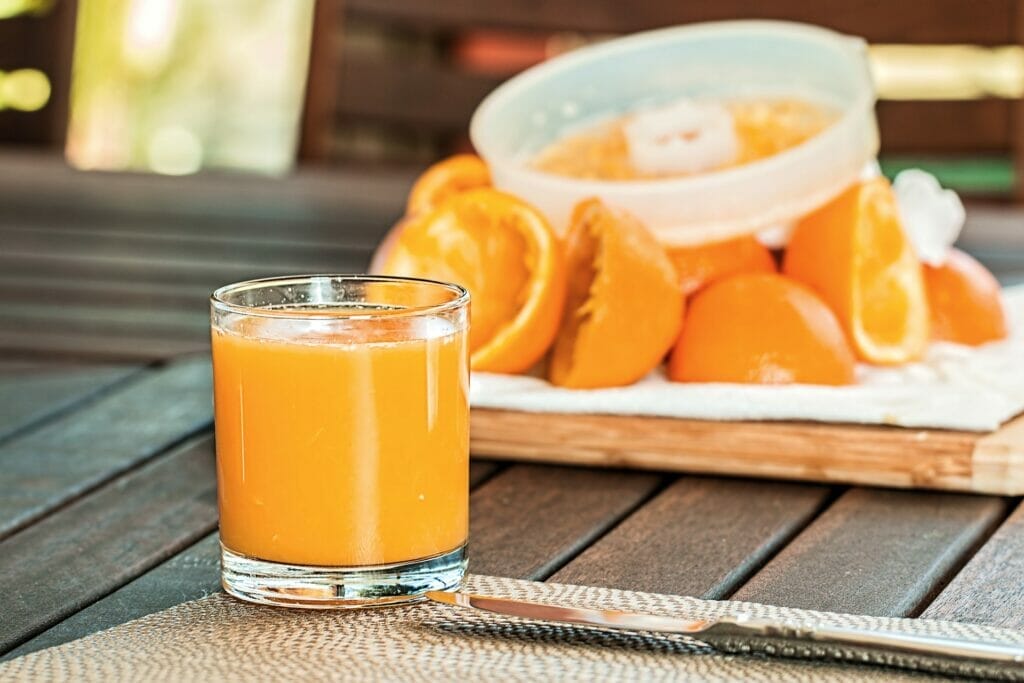Why Do I Feel Sick After Drinking Coffee?
If you ever find yourself feeling sick after drinking coffee, there are a few possible explanations. First off, milk and artificial sweetener can act as irritants in the stomach, leading to feelings of nausea or even vomiting. Additionally, coffee’s effects on the gut’s microbiome might be another factor that can make someone feel unwell.
In addition to these potential causes, drinking coffee on an empty stomach is a common cause for feeling sick afterward. Eating too little food during the day before drinking a cup of joe can lead to this type of reaction. To avoid this sensation, try having some breakfast before your morning coffee.
How Much Coffee Can I Drink Before Becoming Ill?
Knowing how much coffee you can have before feeling sick is important. Fortunately, the recommended amount of caffeine for a healthy adult is four cups of coffee per day. However, too much caffeine intake can cause diarrhea, nausea, and other unpleasant side effects.
If you’re drinking more than a cup of coffee with breakfast food per day and starting to feel bad, it’s best to cut back on your consumption instead of completely giving up regular coffee drinking. Drinking water and food are great ways to counteract the effects of over-drinking caffeine.
For the best health benefits from coffee, it’s best to stay within the range of 1-4 cups per day. Too much can lead to unpleasant side effects!
What Are The Signs Of Coffee Sickness?
When it comes to coffee and its side effects, one of the most common signs is feeling sick after drinking it. This is also known as “coffee sickness”. Symptoms of coffee sickness can include headaches, stomach cramps, and nausea all of which are tell-tale signs that you have overindulged in your caffeine intake.
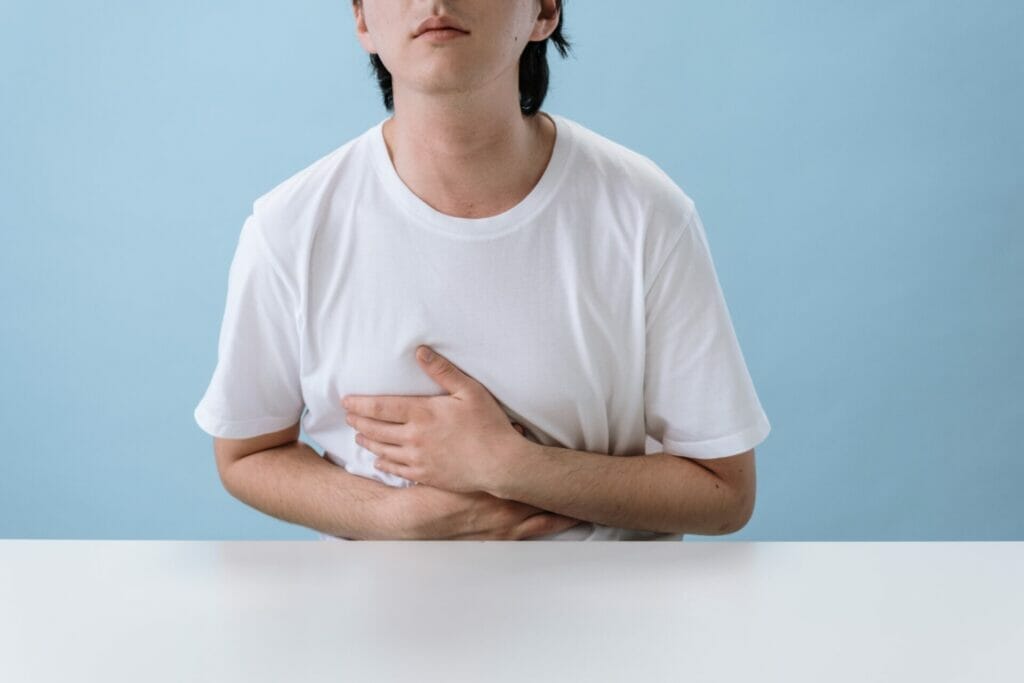
What Factors Contribute To Coffee Sickness?
There are several factors that can contribute to coffee sickness.
- Firstly, because coffee is acidic and can irritate the stomach when consumed, it can cause nausea as the stomach produces more acid in response.
- Dehydration is another factor that can lead to nausea after drinking roasted coffee with cream. The caffeine content in coffee is a stimulant, and can also cause feelings of sickness if you drink too much of it without balancing the caffeine out with enough clean water.
- Lastly, if you’re especially sensitive to coffee or have an overly sensitive stomach, it’s best to opt for a cold brew option as it’s less likely to cause nausea.
What Are The Best Methods For Avoiding Coffee Sickness?
If you want to know how to avoid feeling sick after drinking coffee, there are a few steps you should follow.
- Make sure to stay hydrated. Drinking plenty of fluids, like cold water or juice, will help your body counteract the dehydrating effects of coffee.
- Try not to drink caffeinated drinks too close to bedtime. Caffeine can interfere with sleep, which can lead to feeling nauseous the next day.
- Restrict your caffeine consumption over the course of the day and switch to decaffeinated drinks after 2 pm.
What Are The Dangers Of Coffee Poisoning?
It’s important to know that breakfast with coffee can be dangerous if you don’t take the necessary precautions. When you drink coffee on an empty stomach, it can cause a variety of issues such as nausea, stomach acid reflux, and cramping.
Drinking coffee on an empty stomach can cause your stomach to become inflamed and irritated. Eating with your black coffee can help reduce these harsh effects of what is often referred to as “coffee poisoning.”
How Can I Tell If I’m Getting Coffee Sickness?
Identifying the answer can be done by looking for certain indicators.
- Ask yourself if you are particularly sensitive to caffeine. If so, you may be getting too much of it in your coffee and experiencing some unpleasant side effects.
- If you haven’t eaten before or after drinking milk coffee, drinks, and acidic foods may be to blame for any symptoms you experience.
- Also, keep an eye out for dehydration. If you often feel tired after drinking strong coffee then it could be because your body needs more fluids.
- Consider whether or not you have lactose intolerance as this can also affect how your body reacts to coffee intake.
What Should I Do If I Get A Stomachache After Drinking Coffee?
The most important thing is to stay hydrated and drink plenty of room-temperature water instead of colder water, as this will be much easier on your stomach. It’s a good idea to have some food before you drink milky coffee. This helps reduce acidity and can prevent things like heartburn or acid reflux.
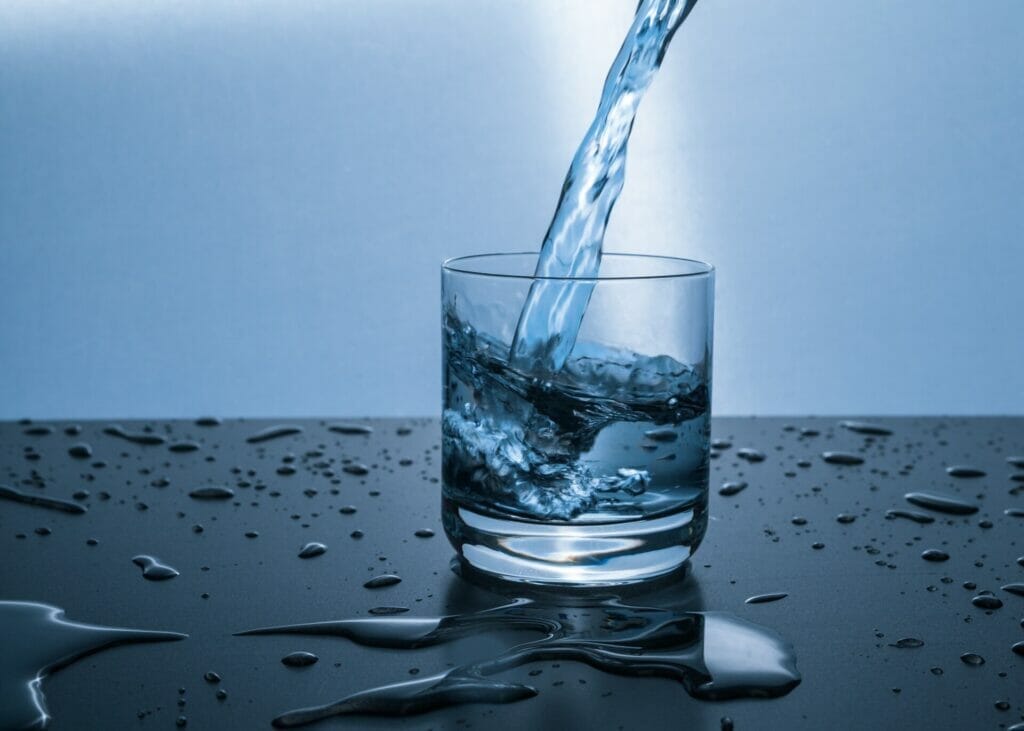
How Can You Keep From Getting Sick After Drinking Coffee?
Here are some tips to stay away from sickness after drinking coffee:
1. Change The Roast
If you’re looking for a way to keep from getting sick after drinking organic coffee, one of the best ways is to change up your roast. You’ll find that darker roasts are usually less acidic than lighter roasts, so dark roasts can be easier on your stomach.
2. Change Your Perspective.
If you want to keep from getting sick after drinking flavorful coffee, changing your perspective is key. Instead of thinking of coffee as a necessary evil, start to frame it as enjoyable and tasty. Try drinking it black if you usually have it with cream, and adding on some milk or cream if having it black makes you nauseous.
3. Coffee Should Be Consumed With A Meal.
If you want to keep from getting sick after a high intake of coffee, it’s important to remember to consume your coffee with a meal. When you drink cold brew coffee on an empty stomach, your stomach may not handle it as well, which can lead to nausea or even more serious digestive issues.
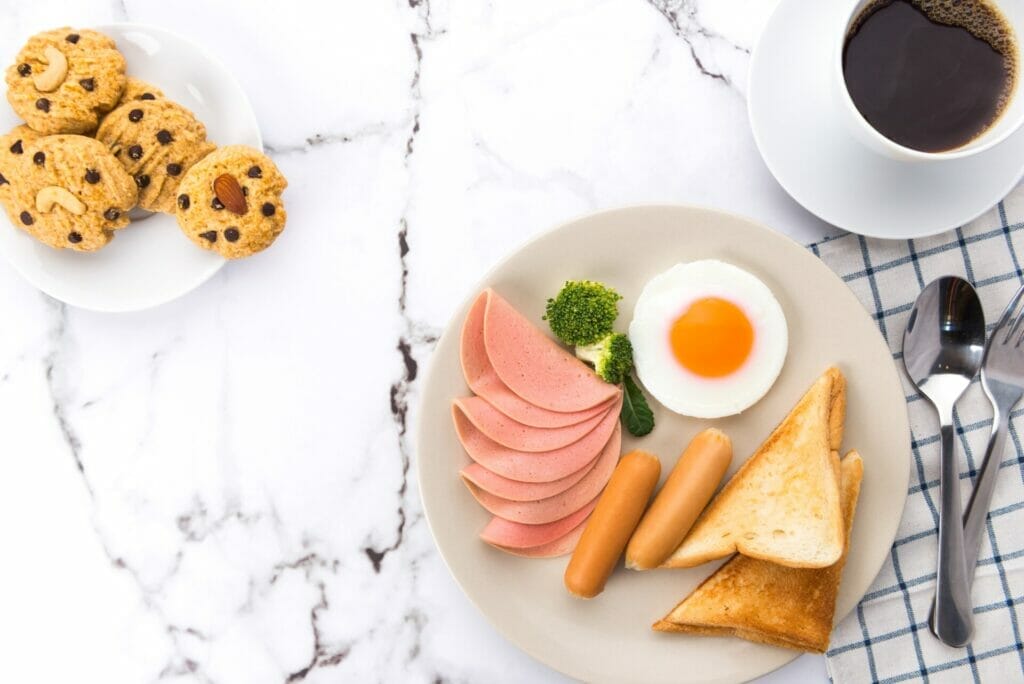
4. Consume Less Caffeine Throughout The Day And Limit The Number Of Cups Of Coffee You Consume Per Day.
If you want to stay healthy after drinking coffee, it’s important to limit the amount of caffeine that you consume throughout the day. Instead of drinking large amounts of coffee black all at once, opt for small amounts spread out over the course of the day.
To help keep within your daily limits of how much caffeine you should be consuming, it is best to limit your number of cups each day and make sure to drink lots of water between each cup.
5. Consume Caffeine-free Beverages.
If you’re looking to limit your caffeine intake, one of the best ways to do it is by consuming caffeine-free beverages. While it might seem like coffee drinks and energy drinks are the only options out there. There are actually a wide variety of tasty caffeinated-free options that still give you that same boost of energy without having to worry about getting sick after drinking them.
6. Keep Hydrated.
It’s essential to stay hydrated after drinking coffee, especially on an empty stomach. Drinking at least 8 glasses of water each day is the first step in avoiding getting sick.
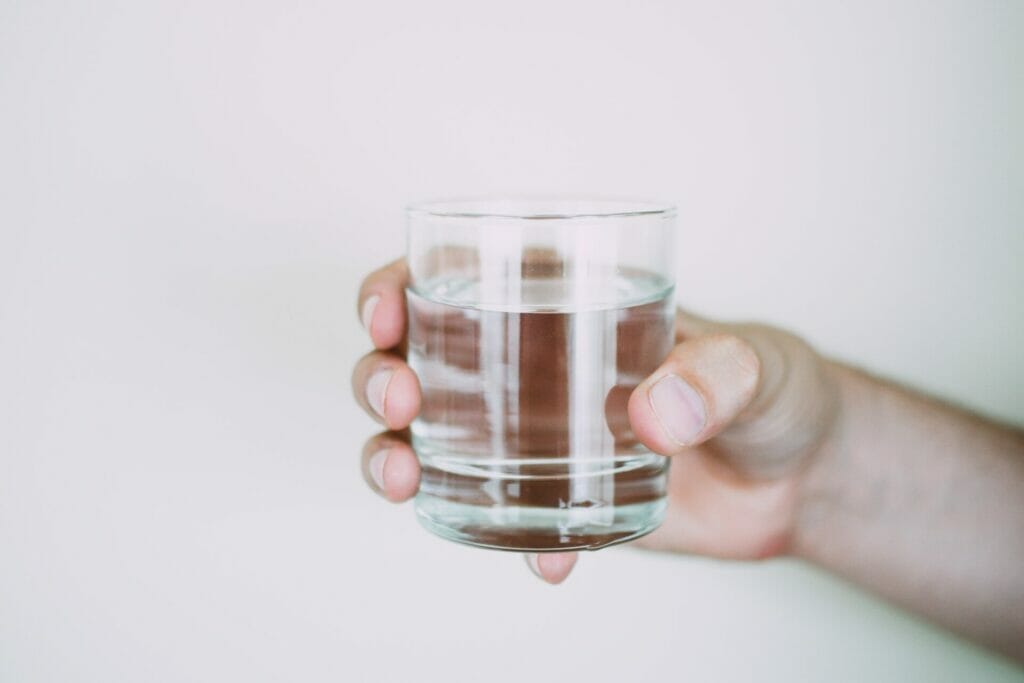
However, since coffee won’t replace your need for electrolytes and water, you want to make sure to restore electrolyte balance as well as prevent dehydration when possible.
7. Coffee Should Not Be Consumed On An Empty Stomach.
One of the most important tips to remember when trying to avoid feeling sick from drinking coffee is to never drink it on an empty stomach. While a cup of joe can make for a great morning pick-me-up, drinking it without food first can lead to nausea and other unpleasant feelings.
What Are Some Coffee Substitutes?
Here are some of the top substitutes for coffee:
1. Herbal tea
Herbal tea is an excellent coffee replacement if you are looking for a decaf beverage. With herbal tea, you can still get the energy boost without experiencing any of the jitters that come with too much caffeine.
2. Decaf coffee
Decaffeinated coffee is a great alternative to regular coffee if you’re looking for something with less caffeine. It’s made by removing most of the caffeine from coffee beans before the roasting process and brewing them.
The typical method for low-acid decaf coffee includes boiling and then cooling or chilling and then boiling the water used. This makes low-caffeine coffee more affordable than regular-flavored coffee since it doesn’t contain as much caffeine.
3. Low-acid coffee
Low-acid coffee is becoming increasingly popular for those who don’t want to consume acidic coffees, as the process of roasting and decaffeination removes some of the acids. Low-acid coffee is made specifically by roasting the beans for longer periods, resulting in a cup of joe that’s lower in acidity and gentler on your stomach.
4. Caffeine-free soda
If you’re looking for a way to avoid the acids and flavors, but still want something that can help give you an energy boost, opt for a caffeine-free soda. You won’t even need to worry about any artificial chemicals or sweeteners here because they don’t add anything to this delightfully fizzy liquid.
5. Water
Water is the ultimate coffee substitute. That’s right: when it comes to replacing your caffeine hit, you can’t beat a glass of water. Proper hydration is essential for your health; drinking at least one glass in the morning will give you an energy boost and help to keep fatigued at bay throughout the day. Water can also speed up how quickly caffeine leaves your system.
6. Milk
Milk is a popular additional ingredient that many of us use to add flavor and texture to our coffee. However, those who are lactose intolerant may experience feelings of nausea when consuming it. Fortunately, there are numerous alternatives available for those with lactose intolerance.

Plant-based milk is the perfect option for people who want to enjoy the smoother taste of their favorite cup of joe without having the unpleasant side effects of caffeine.
7. Juice
If you’re looking for an iced coffee substitute, the juice is an excellent option! Not only will it give you that same burst of energy, but it also has some great health benefits. Drinking a glass of juice in the morning can help flush out toxins and hydrate your cells without making you feel sick.
